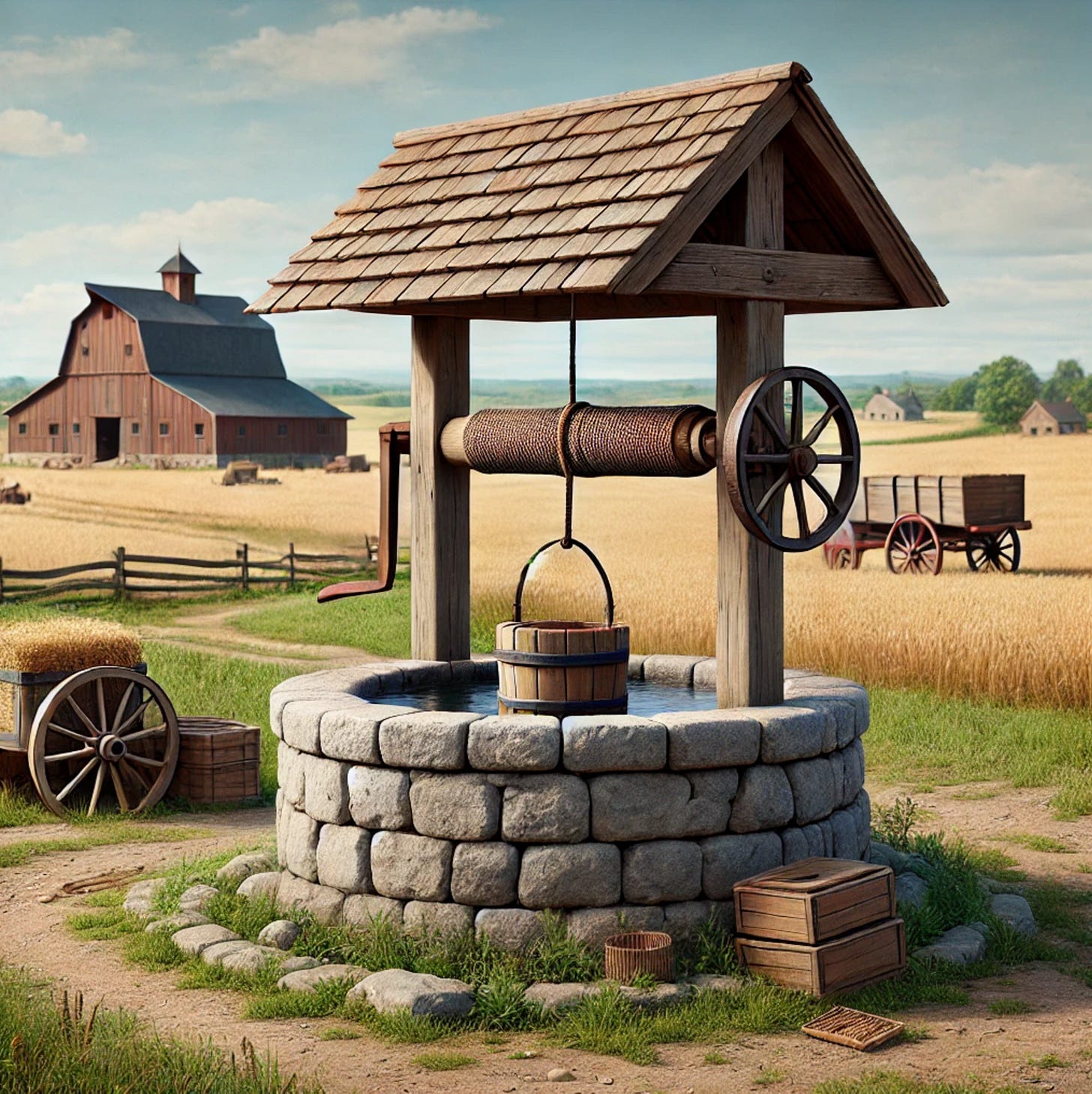Water and Freedom - Newsletter #3
If you don't have water or access to it, you aren't truly free
The Lifeblood of Homesteads: Why Water is Essential and How to Take Control of Your Supply
Water is the foundation of life, the most critical resource for any homestead. Whether you’re growing food, raising animals, or simply ensuring your family’s survival, a steady and reliable water source is non-negotiable. Yet, in an age of overreach, laws and regulations increasingly threaten our natural right to water. But here’s the truth: water is yours to use, to store, and to protect, and it’s time we reclaim our sovereignty over it.
In this post, we’ll explore why water is vital to self-sufficiency and dive into practical, government-free ways to capture and store rainwater. From swales to deep wells, rain barrels to cisterns, these methods empower you to safeguard your water supply.
Why Water Matters for Homesteads
Homesteading isn’t just a lifestyle—it’s a stand for independence. Whether you’re cultivating crops, hydrating livestock, or supporting your family, water is the glue that holds it all together. Yet, municipal water systems and ever-tightening restrictions on water use have turned this essential resource into a regulated commodity. Why should you pay for something that falls freely from the sky or flows beneath your land?
Without water, gardens wither, livestock suffers, and the dream of true self-reliance collapses. The key to resilience lies in taking control of your water supply and ensuring the government can’t limit your access to it.
Methods to Capture and Store Water
Swales: Harvesting Water in the Landscape Swales are shallow, contoured trenches dug along a slope to catch and slow rainwater, allowing it to soak into the soil. By mimicking natural water flow, swales reduce erosion, replenish groundwater, and keep your gardens thriving. Best of all, they’re as old as agriculture itself—completely off the grid and immune to bureaucratic interference.
Deep Wells: Tapping Into the Earth’s Reservoir A deep well accesses aquifers far beneath the surface, providing clean and abundant water. While drilling a well requires initial investment, the payoff is long-term water security. Governments might tax municipal water or ration it during droughts, but your well remains a private lifeline, free from external control. Be careful though as most wells require 240v of electricity. There are some solar well pumps out there but I haven’t tried them yet.
Sand Point Wells: Affordable and Portable For those on a budget or in areas with high water tables, a sand point well is an excellent option. These wells involve driving a perforated pipe into sandy soil to access shallow groundwater. Simple, effective, and unregulated, sand point wells offer a low-cost alternative to deeper drilling. One word of caution with this is without a casing or seal, these can become easily contaminated. Use these for your gardening and animals most of the time unless you plan to boil or filter.
Rainwater Harvesting from Metal Roofs Your roof is more than shelter—it’s a catchment system waiting to happen. Metal roofs are particularly effective at collecting rainwater, as they’re clean and non-porous. Install gutters and downspouts to direct rainwater into storage tanks or barrels. Every drop that falls on your roof is water you don’t have to pull from a well or purchase from a utility company.
Rain Barrels and Cisterns Rain barrels are a straightforward way to store water for gardening and household use. Cisterns take this concept further, offering larger storage capacities for those with more significant water needs. Positioned strategically, they can supply water for irrigation, animal troughs, and even household use with minimal filtration.
The Problem with Water Regulations
In many places, laws restrict or even criminalize rainwater collection, well drilling, or other forms of water independence. Bureaucrats argue it’s about “managing resources” or “protecting the environment,” but let’s call it what it is: control. By restricting access to water, governments create dependency on centralized systems, stripping individuals of their right to self-sufficiency.
Rainwater belongs to no one but those who collect it. Aquifers under your property are your inheritance, not a public resource to be metered and taxed. Laws that dictate how you use water on your land are an affront to the very principles of freedom and self-reliance.
Standing Up for Your Water Rights
Water is life, and control of water is control of life itself. As homesteaders, we must resist any attempts to regulate this natural right. Whether it’s through swales, wells, or rainwater harvesting, every step you take toward water independence is a step away from government interference.
Invest in the tools and techniques that put water back in your hands. Share your knowledge with neighbors and fellow homesteaders. Most importantly, reject any system that seeks to turn your God-given right to water into a privilege you must pay for.
Water is freedom. Claim it, protect it, and never let anyone take it from you.
By building systems to capture and store water on your homestead, you not only secure your survival but make a powerful statement: you don’t need permission to live free. Let’s reclaim our water—and our independence—one drop at a time.


